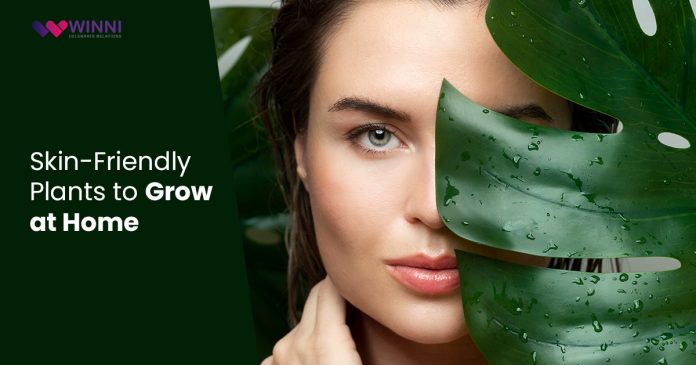Did you know you can easily grow skin-friendly plants at home? Every lady knows how high-maintenance skin care is! As a matter of fact, 75% of women spend a fortune to keep their skin healthy and radiant. However, it doesn’t always have to be an expensive product from a bottle. Sometimes, the best remedies are right in your garden!
Nature has always been a source of healing, and when it comes to skincare, plants play a vital role in nourishing, hydrating, and protecting our skin. From ancient herbal remedies to modern skincare formulations, every major beauty brand uses plant-based ingredients for their natural benefits.
If you’re looking for a chemical-free way to achieve glowing skin, here are some of the plants that have powerful skin-enhancing properties. The best part is that you can grow them at home and enhance your skincare routine! Whether you have a backyard, a balcony, or just a sunny window, these plants will not only add greenery to your space but also help you achieve skin goals naturally.
Aloe Vera
Aloe Vera is one of the most well-known skin-friendly plants. Rich in vitamins A, C, E, and antioxidants, it hydrates and soothes irritated or sunburned skin. Also, it helps treat acne, reduce inflammation, and promote wound healing. Applying fresh aloe vera gel directly to the skin can boost hydration and keep your skin soft and supple.
How to Grow at Home:
- Aloe vera thrives in well-drained soil and needs bright, indirect sunlight.
- Spray water once a week, as it doesn’t like excessive moisture.
How to Use:
- Extract fresh gel from an aloe vera leaf and apply it directly to your skin for instant hydration and cooling.
- Use it as a face mask for 15-20 minutes and rinse with cool water.
- You can also apply it to your hair to make it soft and frizz-free.
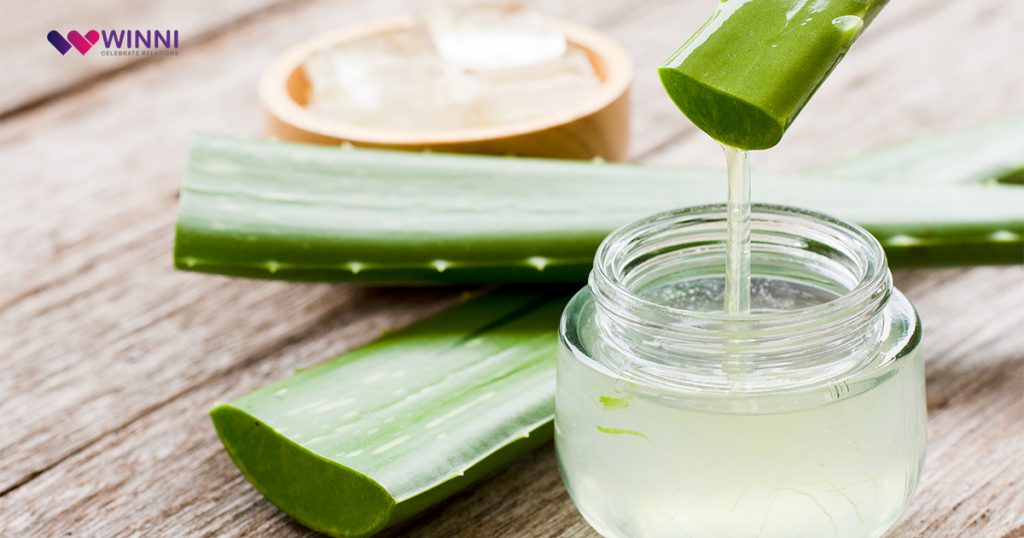
Neem
Neem is packed with antibacterial and antifungal properties, making it a powerful remedy for acne-prone skin. It helps reduce breakouts, clears blemishes, and controls excess oil. Neem also has anti-aging benefits, as it contains vitamin E and essential fatty acids that keep skin healthy.
How to Grow at Home:
- Neem grows well in warm climates and requires full sunlight.
- It can be grown in a large pot or directly in the garden.
How to Use:
- Make neem powder and mix it with rose water to use it as a natural face pack.
- Crush neem leaves into a paste and add water. Apply it as a face mask to fight acne and skin infections and wash it off after 15 minutes.
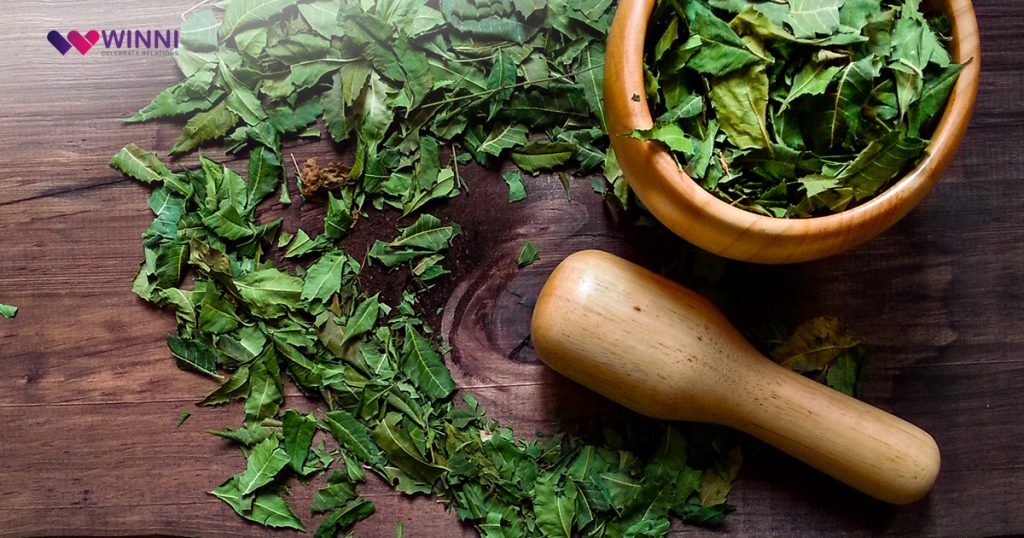
Tulsi
Tulsi is known for its antibacterial and anti-inflammatory properties, which help in purifying the skin and soothe infections. It is effective in treating acne breakouts, rashes, and even skin allergies. Tulsi also acts as a natural toner, tightening pores and giving a fresh glow to the skin.
How to Grow at Home:
- Tulsi is easy to grow in a pot with well-drained soil.
- It needs at least 4-6 hours of sunlight daily.
How to Use:
- Make a tulsi paste with honey and or rose water and apply it as a skin-clearing face mask.
- Spray tulsi-infused water as a toner to refresh your skin every day after wash.
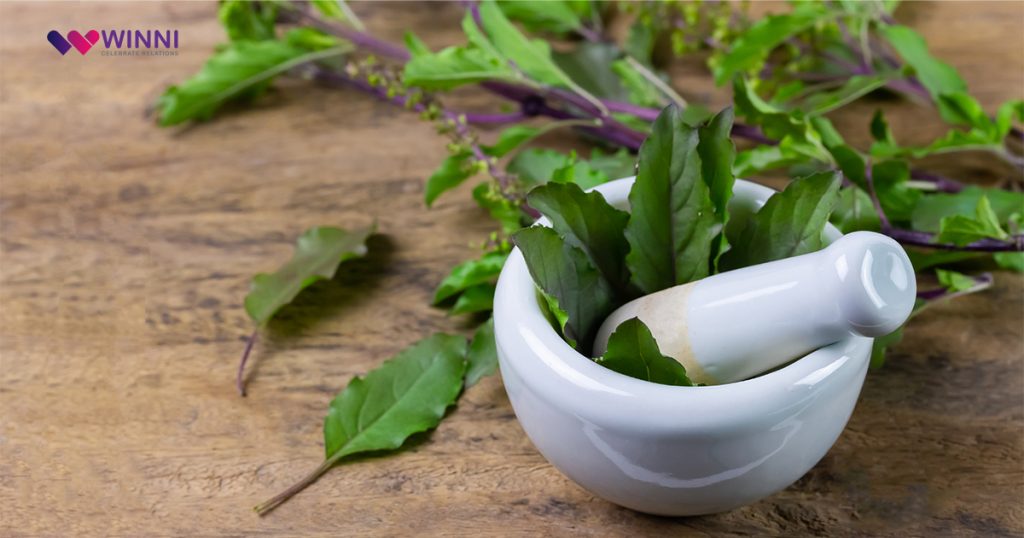
Mint
With its cooling and astringent properties, mint leaves help control excess oil in the skin. It is also an anti-acne herb that reduces the risk of breakout and refreshes the skin. Also, in case of itchy or inflamed skin, mint is the best agent to reverse the damage.
How to Grow at Home:
- Mint grows rapidly in pots or garden beds with partial sunlight.
- It requires regular watering and thrives in moist soil.
How to Use:
- Crush fresh mint leaves, mix them with yogurt, and use as a cooling face mask.
- Along with mint leaves and curd, add honey and multani mitti to use as a face scrub.
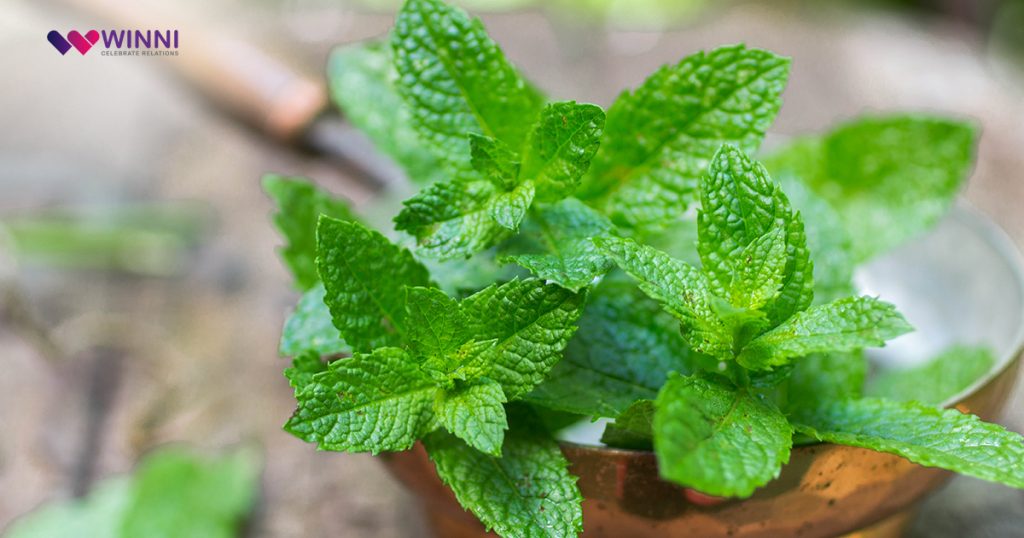
Lavender
Lavender is not just a stress-relieving plant; it’s also one of the great skin-friendly plants. Its antibacterial and anti-inflammatory properties help reduce redness, and irritation, and heal minor cuts and burns. The calming aroma of lavender also promotes relaxation, which indirectly prevents stress-related breakouts.
How to Grow at Home:
- Lavender grows best in well-drained soil with full sun.
- Water the plant when the soil feels dry.
How to Use:
- Use dried lavender flowers to make an infused facial mist for soothing skin.
- Use lavender-infused water as a natural toner for sensitive skin.
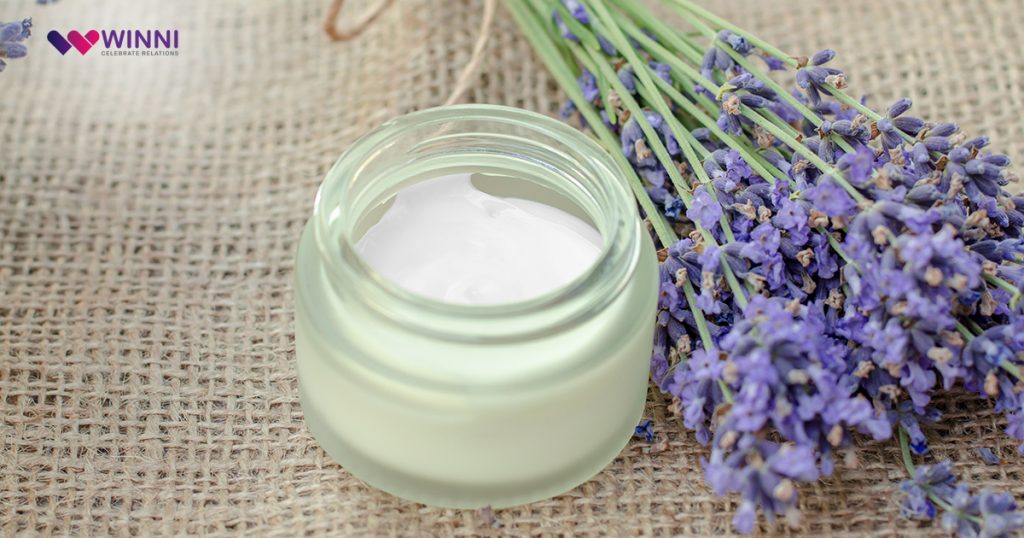
Rose
Rose petals and rose water are excellent for keeping the skin glowing, hydrated, and refreshed. They are rich in antioxidants and have anti-inflammatory properties that help tone the skin, reduce redness, and balance oil production. Regular use of rose in skin care routine protects the skin from premature aging.
How to Grow at Home:
- Roses need plenty of sunlight and well-drained soil.
- Regular pruning helps maintain healthy growth.
How to Use:
- Make a face pack using crushed rose petals and milk for a natural glow.
- Use fresh rose petals to make a rose-infused water toner for skin hydration.
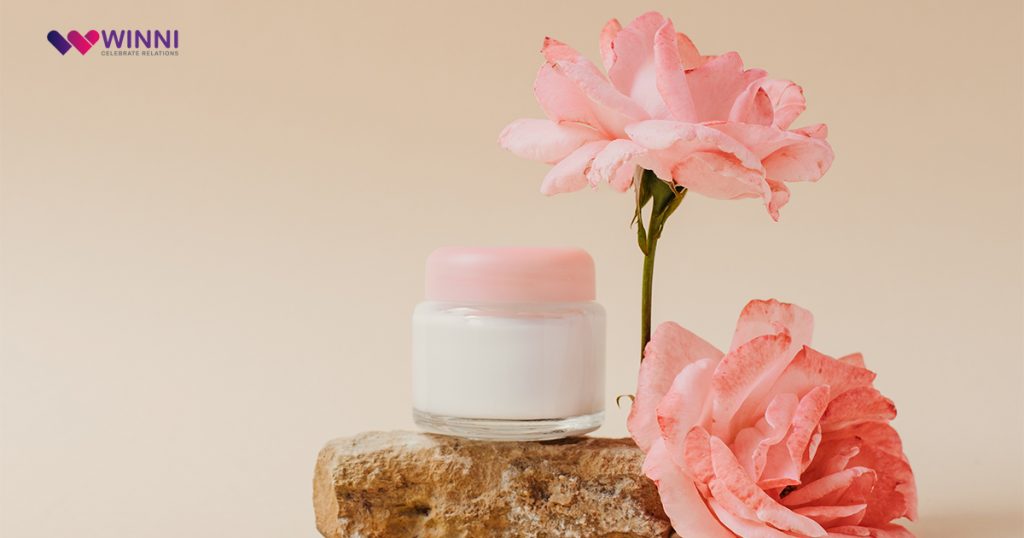
Chamomile
Chamomile is known for its gentle yet effective skin-soothing properties, making it ideal for sensitive skin. It helps in reducing redness, irritation, dryness, and even eczema. Chamomile tea is often used in skincare routines to calm sensitive skin and promote a clear complexion.
How to Grow at Home:
- Chamomile grows well in pots with well-drained soil and partial sunlight.
- Water it moderately and trim flowers to encourage new growth.
How to Use:
- Brew chamomile tea, let it cool, and use it as a facial rinse.
- Mix chamomile tea with honey and apply it as a soothing face mask.
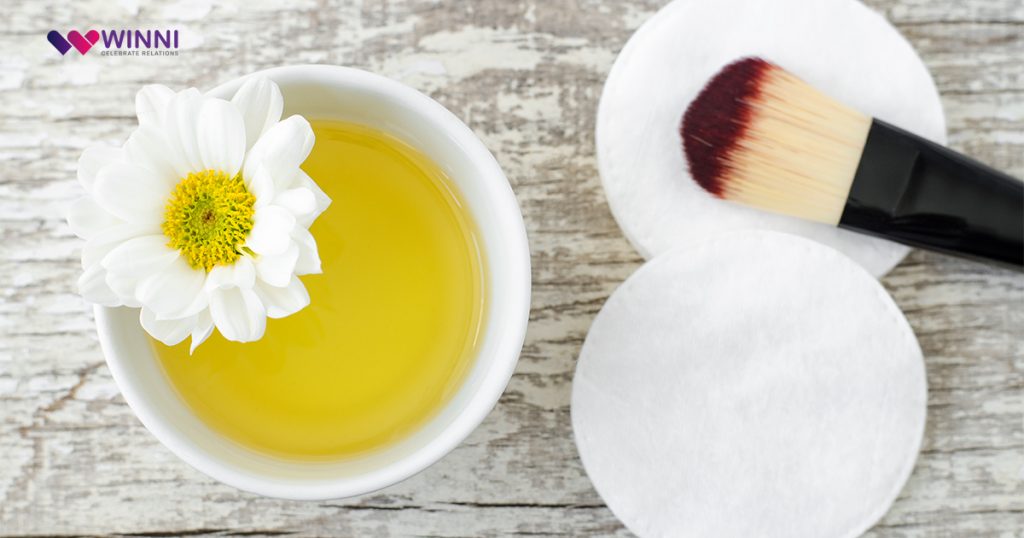
Marigold
Many are not familiar with the skin-friendly nature of marigold flowers. It is a powerful skin-healing plant packed with antifungal, antibacterial, and anti-inflammatory properties. This nature is effective in treating dry skin, eczema, and minor wounds. It also enhances skin hydration and improves elasticity.
How to Grow at Home:
- Marigold grows easily in pots or gardens with full sunlight.
- It needs regular watering and well-drained soil.
How to Use:
- Use fresh Marigold petals to make an infused oil for moisturizing dry skin.
- Use Marigold tea as a natural face rinse for a soothing effect.
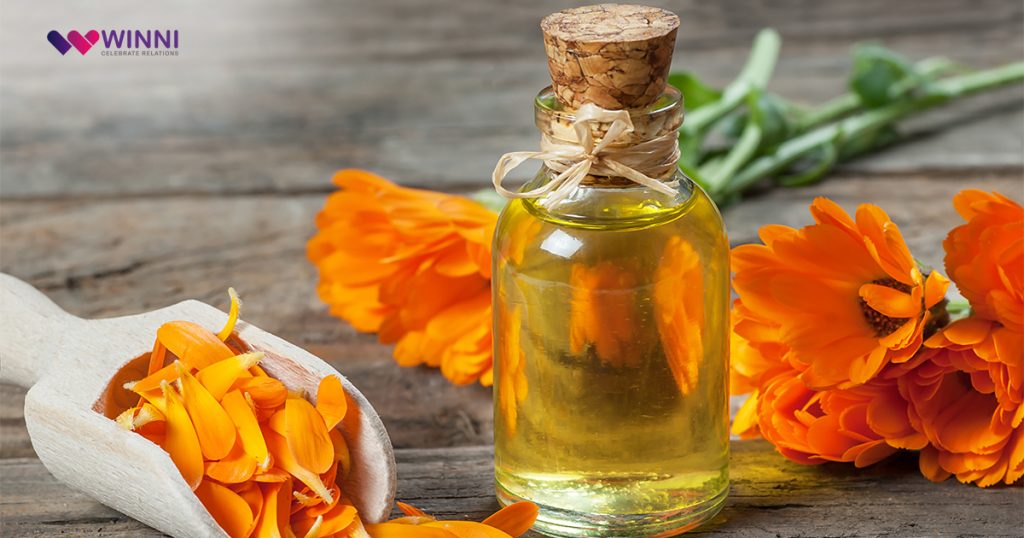
These are just a few names! Nature provides us with an abundance of plants that can enhance our skin health naturally. All you have to do is keep these plants healthy. Growing these plants at home will save you a lot of money and will improve your skin naturally in the long run, keeping you free from certain chemicals. Whatever your goals are – hydration, acne control, glow, soothing relief, or anti-aging benefits, these easily homegrown skin-friendly plants can do wonders.

